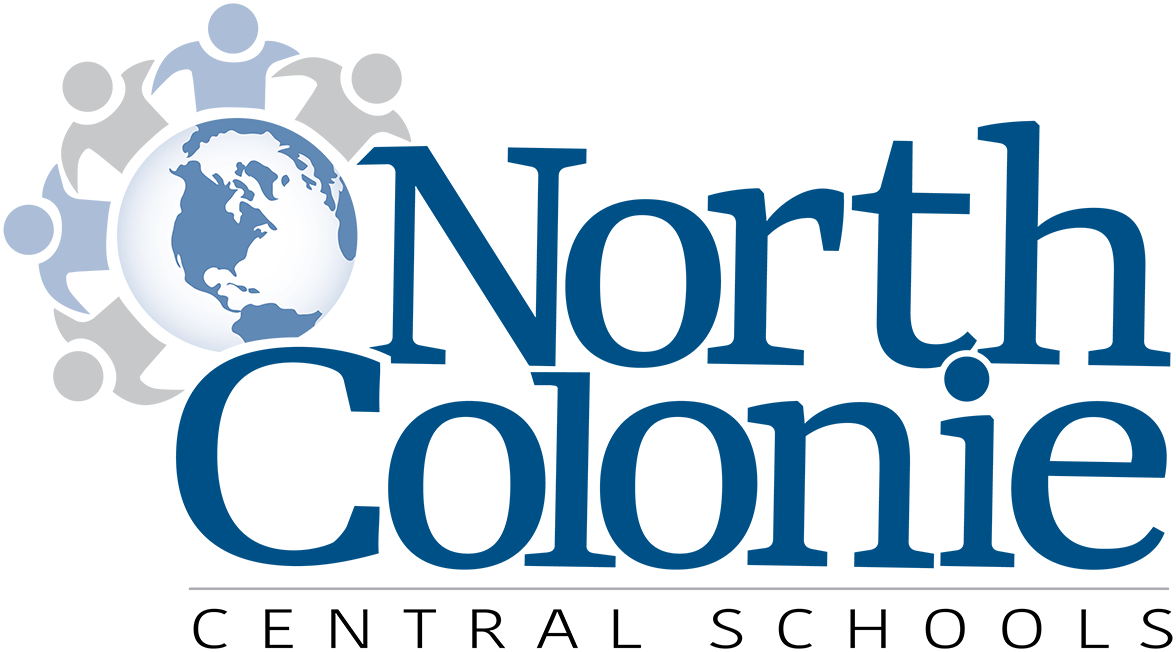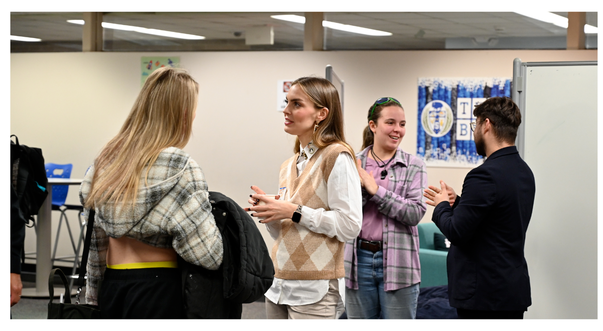On Wednesday, Nov. 5, students from Shaker High School AP Government, Civic Engagement, and Gender in Politics classes had the opportunity to listen to four delegates from Estonia, a small Baltic country of just 1.3 million people. Wedged between Latvia and Finland and about the size of Vermont, this former Soviet nation has transformed into one of the most advanced digital societies in the world.
The four delegates were handpicked by their country to represent Estonia through the Congressional Office for International Leadership’s Open World program, under the theme “From Marshall Plan to North Atlantic Treaty Organization (NATO): The US-Europe Alliance Then and Now.” Their visit to Shaker High School was organized by the International Center of the Capital Region. During their visit, the delegates offered a question and answer panel, followed by a presentation on Estonia. The group then met with students in small groups to share perspectives on politics, youth engagement, and global cooperation.
The first delegate to introduce herself was Renata Lukk, the District Elder of Kristiine District. She serves as the chief executive of one of Tallinn’s eight administrative districts, governing approximately 34,000 residents. A teacher by profession and member of Estonia’s Liberal Party, Lukk entered politics after realizing there were very few women in leadership. She helped create Estonia’s first fully liberal party and proudly noted her involvement in passing a bill for equal marriage.
“I wanted to make a change,” Lukk told students. “I felt like there was a gap in the market for young women who want to make a change.”
Lukk encouraged students to be bold in their decisions, reminding them that “everything you do will be judged, so you make a change anyway.”
Joining Lukk was Dmitriy Fadin, Chief Specialist in Youth Work and Extracurricular Education. Fadin focuses on developing youth programs, recreational centers, and music halls to expand extracurricular opportunities.
“I can make a difference in younger people and help them,” Fadin explained. His work emphasizes the importance of connecting youth with politics and fostering civic engagement early on.
Next on the panel was Emil Lannemets, Secretary General of the Estonian Reform Party Youth, voted into office for his leadership in youth movements. Lannemets said he entered politics because he wanted to contribute to a happier future for others.
“If you want something to change, nobody else is going to change it for you,” Lannemets told the students. “I can live a good life and a happy life, but that is not a goal in itself. I wanted to make other people more happy for generations to come. The best way to do this is politics. I won’t stay in politics forever, you need to experience other things.”
Lannemets also mentioned that Estonia is preparing for the largest tax cut in its history, a sign of the country’s economic development, though he acknowledged, “the challenge is always the money, we’re not short of ideas, just short of money.”
The fourth delegate, Karl Mattias Sepp, represented Estonia’s international and defense community. As a project manager and speaker for the Estonian NATO Association, Sepp works with the European Commission and leads high-level events such as the NATO-EU Roundtable, the Baltic-Nordic Youth Forum, and North Atlantic Council simulations. He is not affiliated with any political party, but focuses on education reform and security awareness. During the presentation on Estonia, Sepp explained the importance of NATO, noting that it was founded in 1949 to protect the freedom and security of member states through political and military cooperation.
“Politics have to be seen as a tool,” Sepp said. “It’s all around us, even if you don’t think it is. You can influence it, and you should influence this.”
Sepp described how Estonia, a NATO border country, has lived “from crisis to crisis,” citing Russia’s ongoing aggression and the significance of security after the war in Ukraine began on Estonia’s Independence Day.
“They constantly poke us,” he said, adding that a large portion of Estonia’s budget is allocated to defense.
Students learned about Estonia’s history and transformation as the delegates reflected on the establishment of the European Commission in 1952, which laid the foundation for the European Union’s creation in 1993. Estonia regained its independence from the Soviet Union on August 20, 1991, following a peaceful movement that began in the late 1980s. Over the past 34 years, Estonia has taken measures to ensure occupation does not reoccur, joining both NATO and the European Union in 2004 and making digital innovation a national priority.
Estonia’s journey toward becoming the world’s first true digital society began in 1994 with the “Principles of Estonian Information Policy.” This led to the creation of e-banking (1996), e-Cabinet meetings and e-Tax systems (2000), mobile parking, and digital identification (2002). In 2005, Estonia became the first country in the world to introduce digital voting. Today, the nation’s e-government includes digital healthcare, education, and even e-marriage. After experiencing one of the largest cyberattacks in history in 2007, Estonia became a global leader in cybersecurity and now hosts the NATO Cooperative Cyber Defence Centre of Excellence and the EU Information Technology Agency in Tallinn. The country is well-known for their technology, as they are the birthplace of Skype, Bolt, and Wise.
Sepp emphasized that “educated people make better decisions moving forward in the future,” explaining how free higher education and free public transportation help ensure that young Estonians remain engaged and informed citizens.
While the delegates expressed that they came to the United States to learn from us, there is just as much we can learn from them. Estonia’s success is built on empowering its youth, remembering its past, and constantly innovating toward the future. As one student reflected, Estonia proves that small ripples can cause big waves.
Aitäh teile (thank you) to Renata Lukk, Dmitriy Fadin, Emil Lannemets, and Karl Mattias Sepp for visiting Shaker High School and inspiring the next generation of civic leaders.

